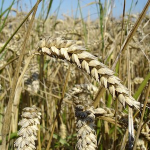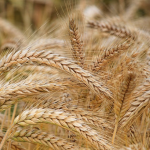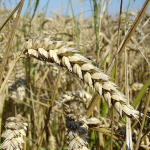Wheat breeding did not contribute to changes in celiac antigenicity in hard red spring wheat. This type of wheat is unique because it has relatively high protein content, which contributes to superior baking quality. Thus, it's in high demand in the global wheat market.
wheat
A new paper provides solid evidence that the cause of the apparent uptick in celiac disease cases is not due to wheat breeding. So, the search for the real cause continues.
Wheat is one of our most important crops. Unlike corn and soy, GMO versions are not sold. There are several reasons for that, but one is the complexity of the wheat genome and challenges of altering it. Now, CRISPR-Cas9 gene editing may have created a bigger, better wheat.
A new kind of genetically engineered wheat is more efficient at absorbing phosphorus from the soil and, hence, should require less fertilizer.
Is it a smart food choice? Or is it just another fad like many weight loss miracle pills, powders and martini diets?
While a field trial of genetically-modified wheat failed to reach its goal (of repelling destructive aphids), the progress made in incorporating relevant genetic traits into the wheat genome will yield more information for better outcomes later.
Here s a question for our Dispatch readers: When is a GMO not a GMO? A proper science answer would go something like this: all agriculture (and really all life) has been genetically modified at some point either by humans or another species (e.g. bacteria or virus) so therefore everything is a GMO.
The gluten-free craze is going strong, as about one-third of Americans report trying to avoid gluten, a protein found in wheat, barley and rye. Yet, only about two to three million Americans have celiac
Genetically-engineered (biotech, GMO) crops are increasingly being utilized by farmers worldwide, with major benefits to them, and to consumers as well. One crop not being so developed: GMO wheat. Why is there none planted nor on the horizon?



